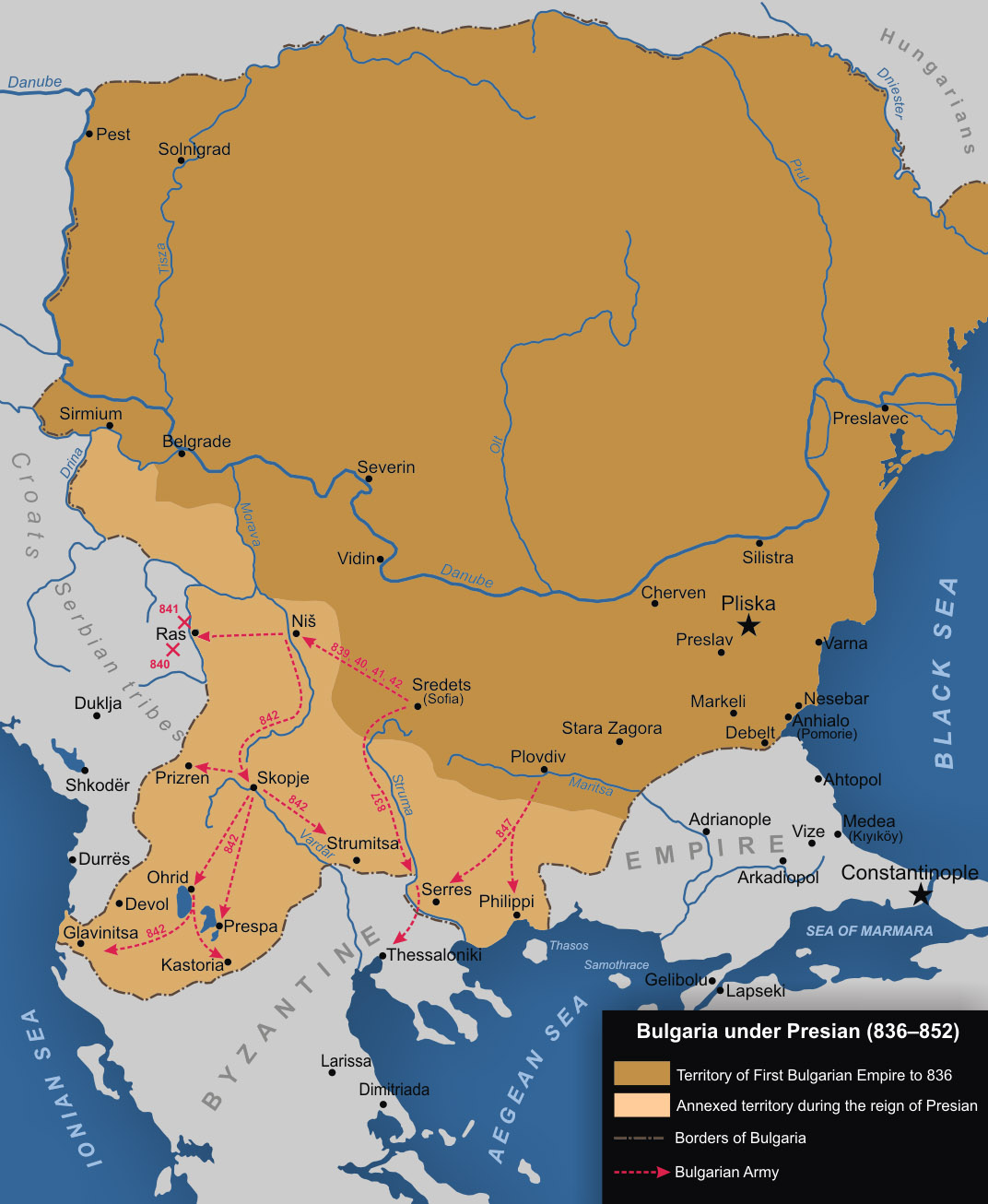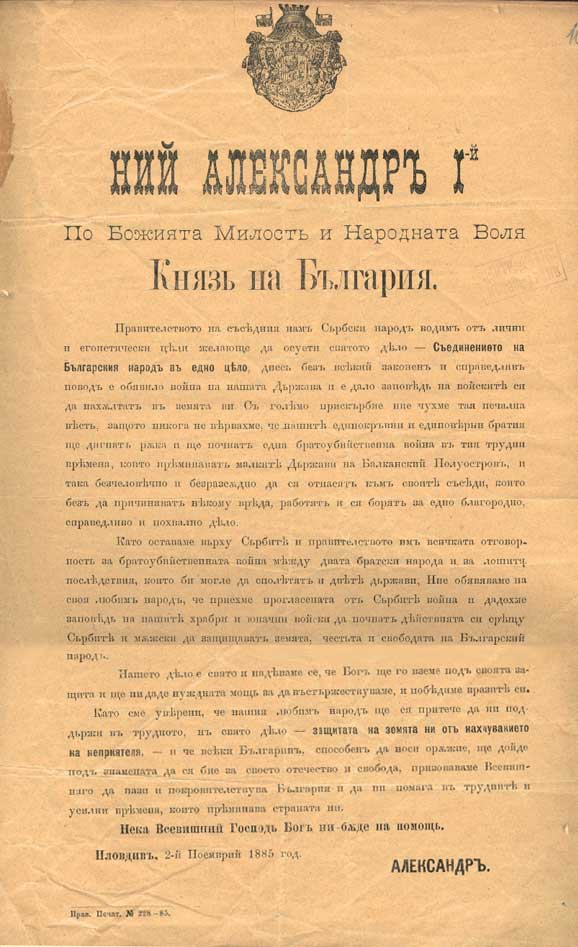|
Bulgarian-Serbian War (other)
The term Bulgarian-Serbian War or Serbian-Bulgarian War may refer to: * Bulgarian-Serbian War (839-842) * Bulgarian-Serbian War (853) * Bulgarian-Serbian wars (917-924) * Bulgarian-Serbian War (1330) * Bulgarian-Serbian War (1885) * Bulgarian-Serbian War (1913), during the Second Balkan War * Bulgarian-Serbian War (1915-1918), during the First World War * Bulgarian-Serbian War (1941-1944), during the Second World War See also * Bulgarian-Serbian wars in the Middle Ages * Toplica Uprising * Bulgarian occupation of Serbia (other) * Serbian Uprising (other) * Serbian-Turkish War (other) {{Disambiguation ... [...More Info...] [...Related Items...] OR: [Wikipedia] [Google] [Baidu] |
Bulgar–Serb War (839–842)
The Bulgarian-Serbian War of 839–842 was fought between the First Bulgarian Empire and the Principality of Serbia (early medieval), Serbian Principality. It was the first conflict of the medieval Bulgarian–Serbian Wars (medieval), Bulgarian–Serbian Wars. Prelude According to ''De Administrando Imperio'', the Serbs and Bulgars had lived peacefully as neighbours until the Bulgarian invasion in 839 (in the last years of emperor Theophilos (emperor), Theophilos). It is not known what exactly prompted the war, as Porphyrogenitus gives no clear answer; whether it was a result of Serbian–Bulgarian relations, i.e. the Bulgarian conquest to the southeast, or a result of the Byzantine-Bulgarian rivalry, in which Serbia was at the side of the Byzantines as an Imperial ally. It was not unlikely that the Emperor had a part in it; as he was in war with the Arabs, he may have pushed the Serbs to drive the Bulgars from western Macedonia, which would benefit them both. According to J. B. Bu ... [...More Info...] [...Related Items...] OR: [Wikipedia] [Google] [Baidu] |
Bulgar–Serb War (853)
The Bulgarian-Serbian War of 853 was fought between the First Bulgarian Empire and the Serbian Principality. It was the second conflict of the medieval Bulgarian–Serbian Wars. Prelude and the War After the death of Prince Vlastimir of Serbia in 850, his state was divided between his sons. Vlastimir and Presian, Boris' father, had fought each other in the Bulgar-Serb War (839–42), which resulted in a Serbian victory. Boris sought to avenge that defeat, an in 853 or 854, the Bulgar army led by Vladimir-Rasate, the son of Boris I, invaded Serbia, with the aim to replace the Byzantine overlordship on the Serbs. The Serbian army was led by Mutimir and his two brothers, who defeated the Bulgars, capturing Vladimir and 12 boyars. Boris I and Mutimir agreed on peace (and perhaps an alliance), and Mutimir sent his sons Pribislav and Stefan to the border to escort the prisoners, where they exchanged items as a sign of peace. Boris himself gave them "rich gifts", while he was ... [...More Info...] [...Related Items...] OR: [Wikipedia] [Google] [Baidu] |
Bulgarian–Serbian Wars Of 917–924
The Bulgarian–Serbian wars of 917–924 () were a series of conflicts fought between the Bulgarian Empire and the Principality of Serbia as a part of the greater Byzantine–Bulgarian war of 913–927. After the Byzantine army was annihilated by the Bulgarians in the battle of Achelous, the Byzantine diplomacy incited the Principality of Serbia to attack Bulgaria from the west. The Bulgarians dealt with that threat and replaced the Serbian prince with a protégé of their own. In the following years the two empires competed for control over Serbia. In 924 the Serbs rose again, ambushed and defeated a small Bulgarian army. That turn of events provoked a major retaliatory campaign that ended with the annexation of Serbia in the end of the same year. Prelude Soon after Simeon I (r. 893–927) ascended to the throne, he successfully defended Bulgaria's commercial interests, acquired territory between the Black Sea and the Strandzha mountains, and imposed an annual tribute on ... [...More Info...] [...Related Items...] OR: [Wikipedia] [Google] [Baidu] |
Battle Of Velbazhd
The Battle of Velbazhd (; ) took place between Bulgarian and Serbian armies on 28 July 1330, near the town of Velbazhd (present day Kyustendil). The growing power of the Serbian Kingdom from the late 13th century raised serious concerns in the traditional Balkan powers Bulgaria and Byzantine Empire which agreed for joint military actions against Serbia in 1327. Three years later the bulk of the Bulgarian and Serbian armies clashed at Velbazhd and the Bulgarians were caught by surprise. Serbian victory shaped the balance of power in Balkans for the next two decades. The Bulgarians did not lose territory after the battle but were unable to stop the Serbian advance towards Macedonia (region), Macedonia. Serbia managed to conquer Macedonia (region), Macedonia and parts of Thessaly and Epirus reaching its greatest territorial extent ever. Their new king Stefan Dušan was crowned Emperor with support from Patriarch of All Bulgaria, Bulgarian Patriarch Symeon in 1346. Origins of the co ... [...More Info...] [...Related Items...] OR: [Wikipedia] [Google] [Baidu] |
Serbo-Bulgarian War
The Serbo-Bulgarian War or the Serbian–Bulgarian War (, ''Srăbsko-bălgarska voyna'', , ''Srpsko-bugarski rat''), a war between the Kingdom of Serbia and the Principality of Bulgaria, erupted on and lasted until . Despite Bulgaria's status as a vassal of the Ottoman Empire, the Ottomans did not intervene in the war. Serbia initiated the fighting but suffered a decisive defeat. Austria-Hungary demanded that Bulgaria stop its invasion, and a truce resulted. The final peace was signed on in Bucharest. The existing boundaries did not change. As a result of the war, European powers acknowledged the act of Unification of Bulgaria which had happened on . Background On , Bulgaria and the semi-autonomous Ottoman province of Eastern Rumelia declared their unification in the city of Plovdiv. Eastern Rumelia, whose population was predominantly ethnic Bulgarian, had been an artificial creation of the Berlin Congress seven years earlier. The unification took place against the wi ... [...More Info...] [...Related Items...] OR: [Wikipedia] [Google] [Baidu] |
Second Balkan War
The Second Balkan War was a conflict that broke out when Kingdom of Bulgaria, Bulgaria, dissatisfied with its share of the spoils of the First Balkan War, attacked its former allies, Kingdom of Serbia, Serbia and Kingdom of Greece, Greece, on 16 (Old Style, O.S.) / 29 (N.S.) June 1913. Serbian and Greek armies repulsed the Bulgarian offensive and counterattacked, entering Bulgaria. With Bulgaria also having previously engaged in territorial disputes with Kingdom of Romania, Romania and the bulk of Bulgarian forces engaged in the south, the prospect of an easy victory incited Romanian intervention against Bulgaria. The Ottoman Empire also took advantage of the situation to regain some lost territories from the previous war. When Romanian troops approached the capital Sofia, Bulgaria asked for an armistice, resulting in the Treaty of Bucharest (1913), Treaty of Bucharest, in which Bulgaria had to cede portions of its First Balkan War gains to Serbia, Greece and Romania. In the Trea ... [...More Info...] [...Related Items...] OR: [Wikipedia] [Google] [Baidu] |
Balkans Theatre
The Balkans theatre or Balkan campaign was a theatre of World War I fought between the Central Powers (Austria-Hungary, Bulgaria, Germany and the Ottoman Empire) and the Allies (Serbia, Montenegro, France, the United Kingdom, Russia, Italy, and later, Greece). The offensive began in 1914 with three failed Austro-Hungarian offensives into Serbia. A new attempt a year later by the combined forces of Austria-Hungary, Germany, and Bulgaria led to the conquest and occupation of Serbia and Montenegro. The Serbian military did not surrender, retreating through the mountains of Albania and evacuated to Corfu before reforming in Salonika a few months later. On the Macedonian front, the Royal Serbian Army joined the Franco-British Allied Army of the Orient and fought a protracted trench war against Bulgarian and German forces. The Allied army presence in Greece resulted in the National Schism on whether Greece should join the Allies or remain neutral, which would benefit the Cent ... [...More Info...] [...Related Items...] OR: [Wikipedia] [Google] [Baidu] |
Bulgarian–Serbian Wars (medieval)
The Bulgarian–Serbian wars were a series of conflicts between the Bulgarian Empire and medieval Serbian states between the 9th and 14th centuries in the central Balkans. Before the 12th century, the Serbian states were dependent upon and strongly influenced by the dominant Balkan powers, the Bulgarian and Byzantine Empires. The rulers of both those countries sought to control Serb princes to use them as allies in the Byzantine-Bulgarian Wars. The first war between Bulgarians and Serbs occurred during the reign of Presian between 839 and 842, precipitated by Byzantine diplomacy. Later after series of campaigns the Bulgarian Emperor Simeon I conquered and destroyed the Serb state in 924. The Bulgarian Emperor Peter I granted formal independence to Serbia in 931 and appointed his protégé Časlav Klonimirović as its ruler. The most powerful Serbian state of the time, that of Duklja, was again subjugated by Emperor Samuil in 998. In the 13th century Stefan Dragutin and h ... [...More Info...] [...Related Items...] OR: [Wikipedia] [Google] [Baidu] |
Toplica Uprising
The Toplica Uprising () was a mass uprising by Serbian rebels against the Bulgarian occupation forces that took place in Bulgarian-occupied Serbia during the First World War. The rebels were motivated by grievances against the Bulgarian authorities for ordering conscription of local Serbs in the Bulgarian army, forced labor and the denationalization policy imposed on the indigenous population. The revolt was supported by Serbian guerrilla fighters known as Chetniks. The uprising lasted from 21 February to 25 March 1917. It was the only uprising in an occupied country during the entire First World War. Background In October 1915, the Kingdom of Serbia, which had throughout the fall of 1914 managed to withstand and repel three Austro-Hungarian invasions, found itself under attack again. This time it was a joint Austro-Hungarian, German, and Bulgarian invasion from two directions that included Austro-Hungarian Third Army, German Eleventh Army, and Bulgarian First and Secon ... [...More Info...] [...Related Items...] OR: [Wikipedia] [Google] [Baidu] |
Bulgarian Occupation Of Serbia (other)
Bulgarian occupation of Serbia ( / Bugarska okupacija Srbije) may refer to: * Bulgarian occupation of Serbia (World War I) * Bulgarian occupation of Serbia (World War II) See also * Bulgarian-Serbian War (other) * Toplica Uprising The Toplica Uprising () was a mass uprising by Serbian rebels against the Bulgarian occupation forces that took place in Bulgarian-occupied Serbia during the First World War. The rebels were motivated by grievances against the Bulgarian author ... {{disambig Bulgaria–Serbia relations ... [...More Info...] [...Related Items...] OR: [Wikipedia] [Google] [Baidu] |
Serbian Uprising (other)
Serbian Uprising can refer to: * Serbian Uprising of 1594 (in Banat) * Serbian Uprising of 1596 (in Herzegovina) * Serbian Uprising of 1737 (in Raška) * Serbian Uprising of 1788 (in Pomoravlje) * Serbian Uprising of 1804 (in central Serbia) * Serbian Uprising of 1814 (in Šumadija) * Serbian Uprising of 1815 (in central Serbia) * Serbian Uprising of 1834 (in Bosnia) * Serbian Uprising of 1841 (in the region of Niš) * Serbian Uprising of 1848 (in Vojvodina) * Serbian Uprising of 1875 (in Herzegovina, Bosnia, and Raška) * Serbian Uprising of 1917 (in Toplica) * Serbian Uprising of 1941 (in Serbia and other parts of Yugoslavia) See also * Srb uprising * Serbian Revolution * Serbian-Bulgarian War (other) * Serbian-Turkish War (other) * Uprising in Bosnia and Herzegovina (other) Uprising in Bosnia and Herzegovina may refer to: * Uprising in Bosnia and Herzegovina (1831-1832), uprising of Muslim nobility in Bosnia and Herzegovina, against ... [...More Info...] [...Related Items...] OR: [Wikipedia] [Google] [Baidu] |






